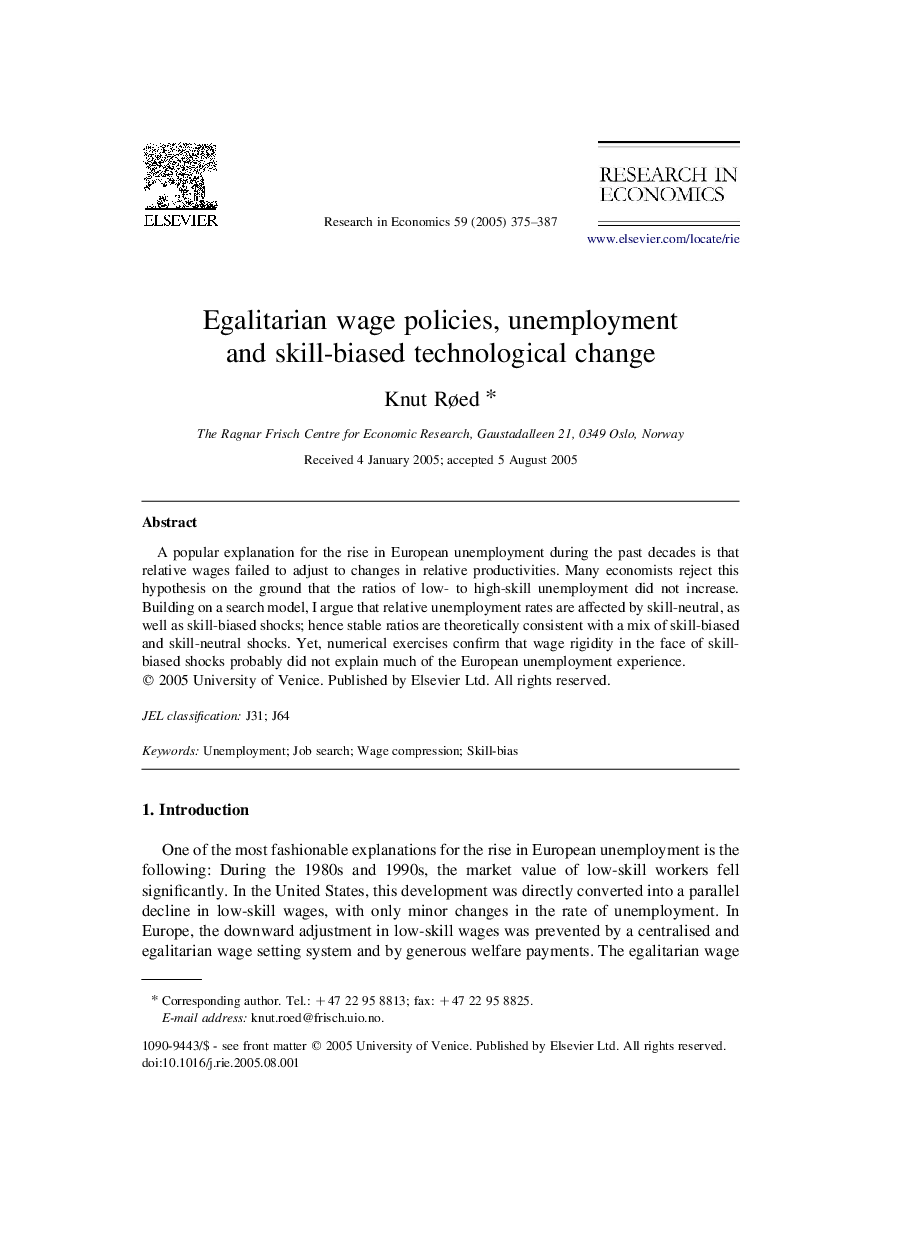| Article ID | Journal | Published Year | Pages | File Type |
|---|---|---|---|---|
| 10482802 | Research in Economics | 2005 | 13 Pages |
Abstract
A popular explanation for the rise in European unemployment during the past decades is that relative wages failed to adjust to changes in relative productivities. Many economists reject this hypothesis on the ground that the ratios of low- to high-skill unemployment did not increase. Building on a search model, I argue that relative unemployment rates are affected by skill-neutral, as well as skill-biased shocks; hence stable ratios are theoretically consistent with a mix of skill-biased and skill-neutral shocks. Yet, numerical exercises confirm that wage rigidity in the face of skill-biased shocks probably did not explain much of the European unemployment experience.
Related Topics
Social Sciences and Humanities
Economics, Econometrics and Finance
Economics and Econometrics
Authors
Knut Røed,
